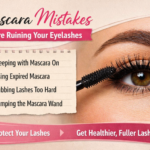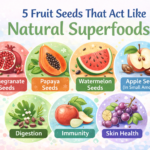If you’re new to skincare, the world of products, routines, and skin types can be overwhelming. That’s why we created this guide – a beginner’s guide to skincare! In it, we explain everything you need to know about both your routine and skin type so that you can build a routine that works for you.

Table Of Content
Beginners Guide To Skincare
Find Your Skin Type
Build A Skincare Routine
Add Skincare Actives
Bottomline
Beginners Guide To Skincare
Skincare can make the world of difference when it comes to your skin, but where do you start? A lot of people get overwhelmed by all of the products and routines on offer – and all of the conflicting information about what is best for your skin type!
That’s why we curated this simple skincare routine– a beginner’s guide to building basic skincare. In this post, we explain everything you need to know about both your routine and skin type so that you can build a routine that works for you.
Find Your Skin Type
First up, let’s take a look at how to determine your skin type. We all have different types of skin, and it’s important to know which one you have so that you can treat your skin with the products that will work best for it.
Your skin type is determined by many things, including your genes, hormones, age, climate, and even what you eat! However, there are three main types of skin – dry, oily, and combination.
Dry skin tends to feel tight after washing, and sometimes flakes or itches. Oily skin can be shiny but also feels greasy and may even have acne breakouts. Combination skin has some dry areas as well as oily patches – which means that you need to treat the different parts of the face differently.
Skincare Routine
Of course, finding the right routine for your skin type is only part of the battle. We also need to focus on what products are best for your skin – so we’ve compiled our top picks for each key skincare category here:
Cleansers:
A cleanser that fits your skin type can make all the difference when it comes to keeping your skin clean and healthy. Choose a cleanser that suits your skin type – dry, combination, or oily – to keep your face in tip-top condition!
Moisturizers:
Moisturizer is very important for all skin types, as it helps to protect and hydrate your skin. However, you need to choose the right moisturizer for your skin type to get the best results. If you have oily skin, choose an oil-free moisturizer that won’t clog your pores or cause breakouts. Dry skin requires a rich and creamy moisturizer to keep it hydrated, while combination skin can benefit from both oil-free and richer moisturizers.
Toner:
Toner is a skincare essential – but which one should you choose? If you have oily skin, look for a toner that contains salicylic acid, glycolic acid, or other acne-fighting ingredients. Dry and combination skin types can benefit from toners with hydrating and soothing ingredients such as glycerin and chamomile.
Exfoliants:
Exfoliants remove dead skin cells from your face, which means that they can help to reduce acne breakouts and other skin issues. They come in different forms – scrubs, powders, or chemical exfoliants – so choose the one that is best for you. If you have normal skin, go for a chemical exfoliant. Oily skin types should use scrubs or powders to reduce acne and the oiliness of the skin. Dry and combination skins can benefit from both chemical and physical exfoliants – although be careful not to overdo it while your skin adjusts!
Eye creams:
The area around the eyes is very sensitive, so it’s important to find the right eye cream. Puffy or tired-looking eyes can be a sign of aging and can make you look tired and old. Oily skin types do not need an eye cream, but all other types should try to find one that contains hydrating and brightening ingredients such as Vitamin C or hyaluronic acid.
Sunscreen:
The sun can have a major impact on the appearance of your skin, so it’s important to use a moisturizer with SPF every day. After all – there is no ‘healthy tan’! Choose an oil-free formula that will not clog your pores, or look for face makeup that contains SPF.
Masks:
Masks are a great way to pamper yourself – but they also give your skin some major benefits! A clay mask helps to draw out impurities and can reduce acne breakouts. Sheet masks help to hydrate the skin and give you a more youthful appearance.
Skincare Actives
Skincare actives are ingredients found in skincare products that help to improve the appearance and health of the skin. These ingredients work at the cellular level to repair and rejuvenate damaged skin, boost collagen production, increase cell turnover rates, and reduce signs of aging like fine lines and wrinkles.
Following are three popular skincare actives:
- Retinoids
Retinoids are a type of skincare actives that are derived from vitamin A. They help stimulate the production of new skin cells, which helps keep skin looking younger for longer.
Retinoids like tretinoin also have antioxidant properties, which help protect the skin from damage caused by free radicals. Tretinoin is one of the most popular skin actives dermatologists swear by.
2. Peptides
Peptides are small fragments of proteins that help stimulate the production of collagen in the skin. By boosting collagen production, peptides can help reduce the appearance of wrinkles and fine lines, as well as improve the overall texture and tone of the skin.
3. Antioxidants
Antioxidants are another type of skincare active that can help protect skin from damage caused by free radicals. They work by neutralizing free radicals before they can cause any harm to the skin, which helps prevent signs of premature aging, such as wrinkles and fine lines.
Bottomline
Building a perfect skincare routine will be different for everyone. Why? Because our skin needs different product combinations and cares according to our skin types.
Although your skin type is determined by genetics, hormones, and other factors – you can still help it to look its best with the right routine. By choosing the right skincare products for your skin type, you can keep your face looking healthy and fresh!







